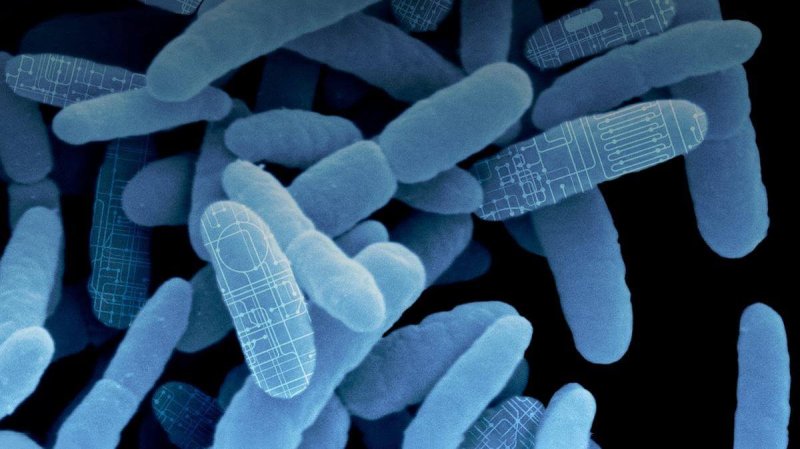A Boston-based synthetic biology company is taking a novel approach to treating the rare genetic metabolic disorder Phenylketonuria. Synlogic uses genetic engineering; but instead of trying to alter patients’ genes, the company is focused on modifying gut bacteria.
Phenylketonuria (PKU) is a genetic metabolic disorder, where the patients cannot properly metabolize the amino acid phenylalanine (Phe). It is an inherited condition, caused by low levels of the enzyme phenylalanine hydroxylase (PAH) (or non-functional recycling pathway of the co-factor THB, required by phenylalanine hydroxylase).
PKU is a serious condition. If untreated, PKU symptoms include mental and behaviour disorders, seizures, light skin, and musty smell. Newborn screening can reveal very quickly the imbalance in the amino acid metabolism, and patients can lead a normal life if they have extremely low-phenylalanine diet. Maintain a lifelong prescription diet is challenging, associated with high costs and social limitations.
There is a very limited amount of non-dietary treatment options and no cure is available. One approved therapy is the continuous injection of PEGylated phenylalanine ammonia lyase (PAL), an enzyme that degrades phenylalanine; however this treatment comes at a high cost and with severe anaphylaxis risk. KUVAN is a PAH activator—effective in patients with poor availability of co-factor THB—is not applicable to many patients and cannot replace low-phenylalanine diet. Gene therapy could solve the problem once and for all, essentially fixing the patient’s non-functional enzyme at the DNA level. However, there is no such treatment approved yet.
Synlogic decided to take a different approach. Instead of attempting to modify the genome of the patient, the company decided to focus on the microbiome. Their idea is to modify Escherichia coli Nissle, a bacterium naturally occurring in the human microbiome, to break down phenylalanine before it damages the host.
The results of this effort were recently reported in Nature Biotechnology, while a clinical trial is underway. The researchers engineered E. coli with two Phe-catabolising enzymes: one is PAL, a cytosolic enzyme; the other is the L-amino acid deaminase (LAAD), which converts Phe to phenylpyruvate. Both enzymes have different limitations. As PAL is located inside the cell, it requires a phenylalanine importer to bring Phe in and catabolise it. LAAD localises in the external membrane, but requires oxygen for its function—oxygen that is scarcely found in the human intestines. Both pathways work, as they reduce Phe concentration in the assays; however, the bacteria expressing them were growing really slowly.
Given the first encouraging results, the Synlogic researchers proceeded to construct the final strain. The researchers wanted a strain that would activate the Phe-degrading pathways only when in the gut, in a precise manner. They also wanted the LAAD enzyme to be expressed in microaerobic environment (where it has activity). Moreover, the strains would need to harbour no antibiotic resistance cassettes (to be used in humans) and have the transgenes incorporated in the genome (for stability). The final E. coli strain SYNB1618 satisfied all these requirements, with the addition of a biocontainment switch to prevent it from release into the environment.
The final strain’s efficiency as a phenylalanine regulator was experimentally tested in mice with PKU and in healthy monkeys. In both cases, the researchers detected degradation products caused by the heterologous enzymes secreted in the urine, without any side effect. Also, they report that unhealthy mice injected with the probiotic strain reduced their phenylalanile blood levels by 38%. As clinical trials proceed, Synlogic just announced positive initial results for the ongoing Phase 1/2a clinical trial.
This treatment approach is pioneering. Things looks promising so far, so I am looking forward to the clinical results. SYNB1618 could act as a regulator of Phe, especially in adult PKU patients that have trouble maintaining a prescription diet. Synlogic has a rich portfolio of probiotic strains as treatment to metabolic disorders (trademarked as Synthetic Biotics™), in various stages of trial as therapeutics. Their metabolic disease portfolio includes other conditions, such as hyperammonemia and maple syrup urine disease. Exploiting the microbiome for therapeutic applications is a fascinating and promising direction, and I expect to see more in the future.
Dr. Konstantinos (Kostas) Vavitsas is a postdoctoral fellow at the University of Queensland, on expanding the synthetic biology potential of cyanobacteria. He is a member of the executive board of Synthetic Biology Australasia, and community editor for PLOS synbio. Follow him on Twitter @konvavitsas
A version of this story originally ran at PLOS as Synthetic probiotics for genetic disease treatment and has been republished here with permission.































